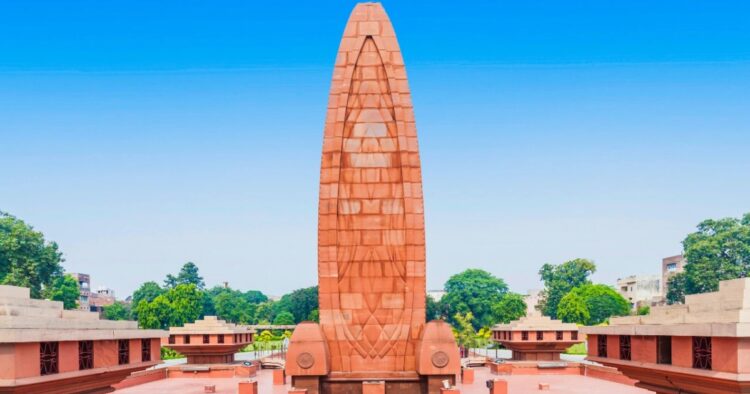106 years ago, on April 13, 1919, a peaceful gathering at Jallianwala Bagh in Amritsar turned into one of the most painful and tragic days in India’s history. It was a sunny afternoon during the Baisakhi festival, and thousands of innocent men, women, and children had gathered at the park to celebrate and discuss peaceful protests against British laws.
But without any warning, British General Reginald Dyer marched into the area with armed soldiers. He blocked the only exit and gave the cruel order to open fire on the unarmed crowd. The people had no weapons, no plans for violence- just voices. Still, the British soldiers fired for ten long minutes. They did not stop until their bullets ran out.
The scene was heartbreaking. Children screamed while holding their mothers who had fallen. Elders tried to protect their families but were shot down. People ran, jumped into a well, or lay flat to escape, but there was nowhere to hide. In those ten minutes, more than a thousand people were killed, and many more were injured. It was pure cruelty. General Dyer did not feel any guilt. He proudly accepted his actions, showing no regret.
That day, the heart of India, or Bharat, bled. It was not just a massacre; it was a message from the British that Indian lives did not matter to them. But instead of breaking India’s spirit, it made the country stronger. The pain gave birth to more courage. Indians decided they would never forget, and they would fight harder for freedom.
More than a century has passed, yet the British government has never officially apologized for this horrifying act. In 2019, then-British Prime Minister Theresa May called the massacre a “shameful scar,” but her words were not a clear apology. It felt like a formality, not a heartfelt expression of guilt.
Many British Members of Parliament, like Bob Blackman, Virendra Sharma, Tanmanjeet Singh Dhesi, Seema Malhotra, and Clive Lewis, have raised their voices in the UK Parliament. They have clearly asked the British government to apologise for the Jallianwala Bagh massacre. But their calls have not been taken seriously.
Even members of the British royal family have visited Jallianwala Bagh in India. But instead of saying sorry, they have only shown symbolic regret. They bowed, they laid wreaths, but they did not apologise. These gestures may look polite, but they do not bring peace to the families of those who died that day.
This silence from the UK raises serious and uncomfortable questions. Why is the British government afraid to say sorry? What message does this send to the world and to the families of the victims? Are they still trying to hide their past or act like it didn’t happen?
India and its people have not forgotten. The memories of Jallianwala Bagh are passed from one generation to the next. The bravery of the victims and the cruelty of the killers are both remembered. And the question remains- how long must the families of those who died wait for a simple, honest apology?
ALSO READ: “British MP Condemns Attack On Hindus In Bangladesh: Hindus Are Being Subject To Death

















Comments